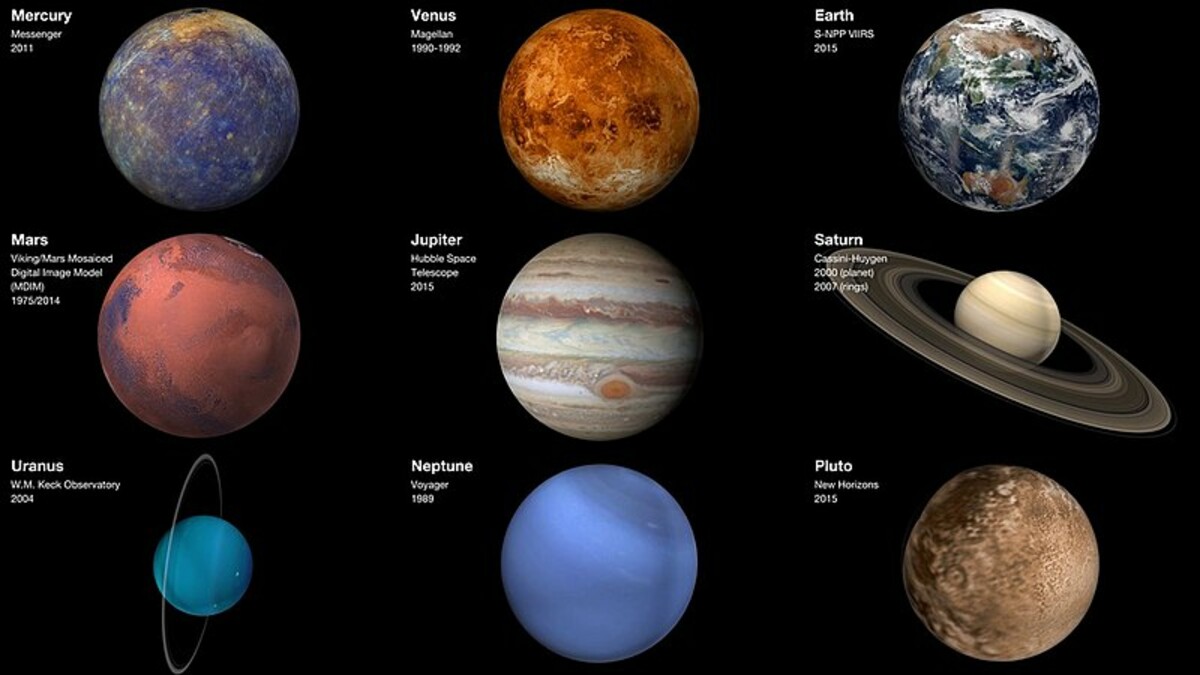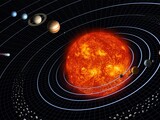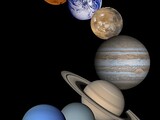


Planets
The name "planet" is from the Greek word πλανήτης (planetes), meaning "wanderers", or "things that move". Until the 1990s, people only knew the planets in the Solar System.
4,905 extrasolar planets (exoplanets) have been discovered in 3,629 planetary systems (January 2022 data). The count includes 808 multi-planetary systems. Known exoplanets range in size from gas giants about twice as large as Jupiter down to just over the size of the Moon. About 100 of these planets are roughly the size as Earth. Nine of these orbit in the habitable zone of their star.
A planet is a large object such as Venus or Earth that orbits a star. Planets are smaller than stars, and they do not make light. Jupiter is the biggest planet in the Solar System.
Planets are shaped like a slightly squashed ball (called a spheroid). Objects that orbit planets are called satellites. A star and everything which orbits it are called a star system.
There are eight planets in the Solar System. Pluto used to be called a planet, but in August 2006, the International Astronomical Union decided it was a dwarf planet instead. There are four more known dwarf planets in the Solar System, Ceres, Makemake, Eris and Haumea.
Latest updates!
All the news in one place.
The order of the planets in the solar system from nearest the sun are:
Mercury
is the smallest planet in the Solar System and the closest to the Sun.
Venus
is the second planet from the Sun. It is named after the Roman goddess of love and beauty.
Earth
is the third planet from the Sun and the only astronomical object known to harbor life.
Mars
is the fourth planet from the Sun and the second-smallest planet in the Solar System, being larger than only Mercury.
Jupiter
is the fifth planet from the Sun and the largest in the Solar System.
Saturn
is the sixth planet from the Sun and the second-largest in the Solar System, after Jupiter.
Uranus
is the seventh planet from the Sun. Its name is a reference to the Greek god of the sky, Uranus.
Neptune
is the eighth and farthest-known Solar planet from the Sun.
Pluto
a dwarf planet. After Pluto was discovered in 1930, it was declared to be the ninth planet from the Sun. Beginning in the 1990s, its status as a planet was questioned.
More about planets
Check out all the planets in space!
FAQ
This seemingly simple question does not have a simple answer. Everyone knows that Earth, Mars and Jupiter are planets. But both Pluto and Ceres were once considered planets until new discoveries triggered scientific debate about how to best describe them—a vigorous debate that continues to this day. The most recent definition of a planet was adopted by the International Astronomical Union in 2006. It says a planet must do three things: 1. It must orbit a star (in our cosmic neighborhood, the Sun). 2. It must be big enough to have enough gravity to force it into a spherical shape. 3. It must be big enough that its gravity cleared away any other objects of a similar size near its orbit around the Sun. Discussion—and debate—will continue as our view of the cosmos continues to expand.
